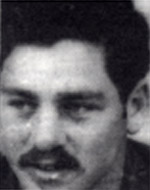Son of Miriam and Yitzchak, was born on January 15, 1952 in Kibbutz Yavneh. He finished elementary school at the kibbutz school. In the summer of 1967, Yedidya joined his family, which was sent to the United States on behalf of Bnei Akiva. Two years later he returned to Israel and completed his high school studies in Yavneh. From childhood he was an avid music lover and his love of music had accompanied him all his life. He used to receive the nannies in the children’s home every morning while the other kids were still asleep. When he was a little boy, Yedidya used to listen to music on the radio and at the age of eight began to learn to play the violin. His teachers, who knew his talents, urged him to continue his studies and training. But his friends at the children’s company, sometimes misunderstood his language. He was sensitive to every word that was offensive, but he could not fight back because he was never a quarrel. He was gentle, shy and timid. In 1967, Yedidya was among the candidates for a scholarship from the Sharett Foundation, and although he did not receive a scholarship, he received a commendation and a letter of recommendation, which helped him continue his musical career in the United States. In New York, Yedidya studied at a yeshiva in Flatbush and at the Hebrew School of Art. Being involved in a foreign country was very difficult for him and he did not find his place easily. His limited knowledge of language, strict discipline, and strict discipline at school were a major obstacle, but also a challenge to success. Indeed, he invested his best energies and efforts and became an ordinary student. Long hours of violin training helped her friends compensate for the difficulties of adjustment. One day he appeared as a soloist in a grand hotel before a group of conservatives. Standing on the stage, he asked for a few sentences to be played. In a stuttering English he said that he wanted to devote his music to the memory of the IDF soldiers and the members of the Yavneh group, who fell on the defense of the country, and his music, “Hasidic melodies” by Ernst Bloch, aroused great excitement in the audience. He had a violin from the Music Center near Carnegie Hall, and his friends abandoned playing the violin and began to play guitar, accompaniment, and singing in public, and when he returned to the Yavneh group for a final year with his friends and peers, , Yedidya was drafted into the IDF at the beginning of December 1970 and assigned to the infantry Nahal closed. After completing basic training, past commanders’ course and skydiving course and served as platoon commander. In 1972, he was sent to a course for infantry officers, and after his graduation, Yedidya was sent to his unit and served as an officer, and he was a very good officer who was very punctual and thoroughly dedicated. And his willingness to always help everyone, his patience was great, his commanders liked him for his easy temperament, his good character, and his good friend. During the course of his military service, his friends often encountered situations in which religion existed And the current military needs, created conflicts that caused him, on the one hand, questions and questions about what was right and what was permitted, and on the other hand, his remorse, for having been compelled to act contrary to his way of life and education. And in his letters he speaks with great joy about holidays and holidays that he managed to celebrate despite the secular atmosphere in the army.Yedidya, at his request, made a year of service on behalf of the Religious Kibbutz Movement and guided youth in distress in Netivot. There he met Shosh, a teacher-soldier who also saw her mission in providing help to the needy. Their love flourished and they married. They had two daughters and a son. They were infinitely Simcha. After his military service, Yedidya worked as a dairy farmer, and later became the maintenance of the kitchen and the dining room. For two years he studied at the Rubin Academy of Music in Jerusalem, founded the young klezmer ensemble in the kibbutz, sang in the Yavne Choir, planned to set up a children’s choir and many more were his plans. On the tenth of Kislev 5743 (10.11.1982), while he was in reserve duty, his friends fell in the line of duty. He was brought to eternal rest in the cemetery in Kvutzat Yavneh. He left behind a wife, a son and two daughters, parents and three sisters. In a letter of condolences to the bereaved family, his commander wrote: “… Lt. Yedidya served in the unit since its establishment and took part in its operational activities and training every year. Was known for his pleasant manner, accepted and loved by commanders and soldiers, so they always remembered “
